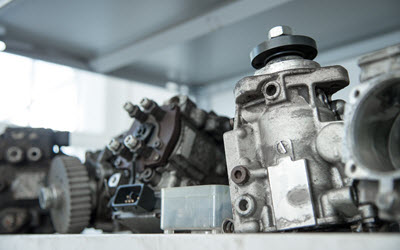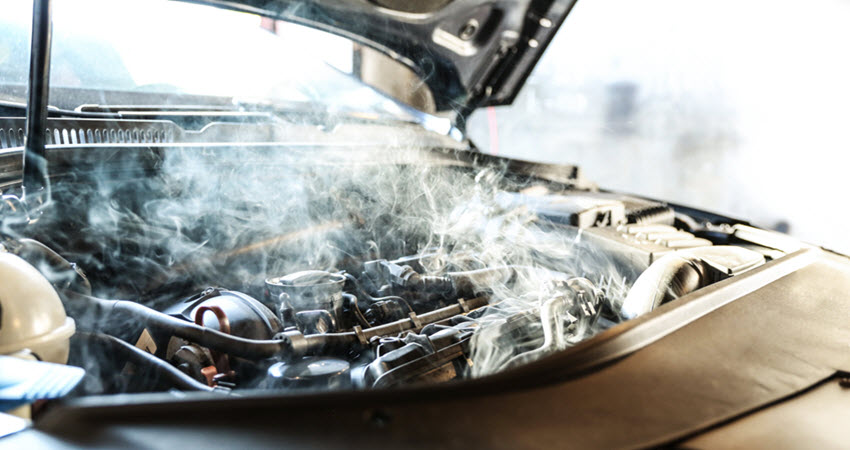The high-pressure fuel pump is an essential component of your BMW’s fuel system. It is responsible for delivering fuel at high pressure to the engine’s injectors, ensuring proper fuel atomization and combustion. However, over time, high-pressure fuel pumps can fail, causing a range of issues from poor performance to complete engine failure.
Contaminated Fuel
One of the most common causes of high-pressure fuel pump failure in BMWs is contaminated fuel. Fuel contamination can come from a range of sources, such as rust or debris in the fuel tank, water in the fuel system, or poor-quality fuel. Contaminants in the fuel can cause damage to the high-pressure fuel pump’s internals, such as the pistons and seals, leading to failure.
Lack of Maintenance
Proper maintenance is essential to the longevity and performance of your BMW’s high-pressure fuel pump. Regular fuel system cleaning, fuel filter replacement, and injector cleaning can help prevent contamination and debris buildup, reducing the risk of high-pressure fuel pump failure. Failure to perform these maintenance tasks can result in clogged fuel lines and injectors, which can cause the high-pressure fuel pump to work harder than it should, leading to premature failure.
Overheating
High-pressure fuel pumps generate a significant amount of heat during operation. If the fuel system is not properly cooled, the high-pressure fuel pump can overheat, leading to internal damage and failure. In BMWs, overheating can be caused by a malfunctioning cooling system, such as a failing water pump or thermostat, or a blocked radiator.
Wear and Tear
Like any mechanical component, the high-pressure fuel pump can wear out over time due to normal use. As the internal components wear down, they can cause leaks or reduced fuel pressure, which can result in engine performance issues. In some cases, the high-pressure fuel pump may need to be replaced to restore proper function.
Low-Quality Fuel
Using low-quality fuel in your BMW can lead to a range of issues, including high-pressure fuel pump failure. Low-quality fuel may contain impurities, water, or other contaminants that can cause damage to the high-pressure fuel pump’s internals. Additionally, low-quality fuel may not have the proper octane rating, leading to engine knock and other performance issues.
Fuel System Blockages
Blockages in the fuel system can cause the high-pressure fuel pump to work harder than it should, leading to premature failure. Fuel system blockages can be caused by a range of issues, such as debris in the fuel tank, a clogged fuel filter, or a malfunctioning fuel pressure regulator. These blockages can cause the high-pressure fuel pump to work harder than it should, leading to increased wear and eventual failure.
Fuel Pump Controller Failure
In BMWs, the high-pressure fuel pump is controlled by a fuel pump controller. If this controller fails, it can cause the high-pressure fuel pump to work harder than it should, leading to increased wear and eventual failure. Fuel pump controller failure can be caused by a range of issues, such as electrical faults or component wear.
Misfiring Cylinders
Misfiring cylinders can cause the high-pressure fuel pump to work harder than it should, leading to increased wear and eventual failure. Misfires can be caused by a range of issues, such as worn spark plugs, damaged ignition coils, or a malfunctioning fuel injector. These issues can cause the high-pressure fuel pump to work harder than it should, leading to premature failure.
Engine Oil Contamination
If engine oil gets into the fuel system, it can cause damage to the high-pressure fuel pump’s internals, such as the pistons and seals, leading to failure. Engine oil contamination can be caused by a range of issues, such as a failing valve cover gasket or a damaged cylinder head. It’s important to address any oil leaks or engine issues promptly to prevent oil contamination and subsequent high-pressure fuel pump failure.
Tuning and Modifications
Tuning and modifications to increase engine performance can put additional strain on the high-pressure fuel pump, leading to premature failure. Modifications such as upgraded injectors, larger turbos, or increased boost pressure can require more fuel to be delivered, which can cause the high-pressure fuel pump to work harder than it should, leading to increased wear and eventual failure. It’s important to consider the implications of any modifications before making changes to your BMW’s engine.
Milestone Motors: BMW Experts
At Milestone Motors, we understand the importance  of keeping your BMW running smoothly, and our experienced technicians are here to help. Whether you’re in Palm Beach, Wellington, West Palm Beach, or Royal Palm Beach, FL, we’re proud to be your go-to for all BMW repairs, including issues with the high pressure fuel pump. Trust us to get your BMW back on the road and running like new.
of keeping your BMW running smoothly, and our experienced technicians are here to help. Whether you’re in Palm Beach, Wellington, West Palm Beach, or Royal Palm Beach, FL, we’re proud to be your go-to for all BMW repairs, including issues with the high pressure fuel pump. Trust us to get your BMW back on the road and running like new.
 179 Reviews
179 Reviews  530 Business Parkway Ste 2., Royal Palm Beach, FL 33411
530 Business Parkway Ste 2., Royal Palm Beach, FL 33411 561-779-2650
561-779-2650 Appointment Now
Appointment Now
